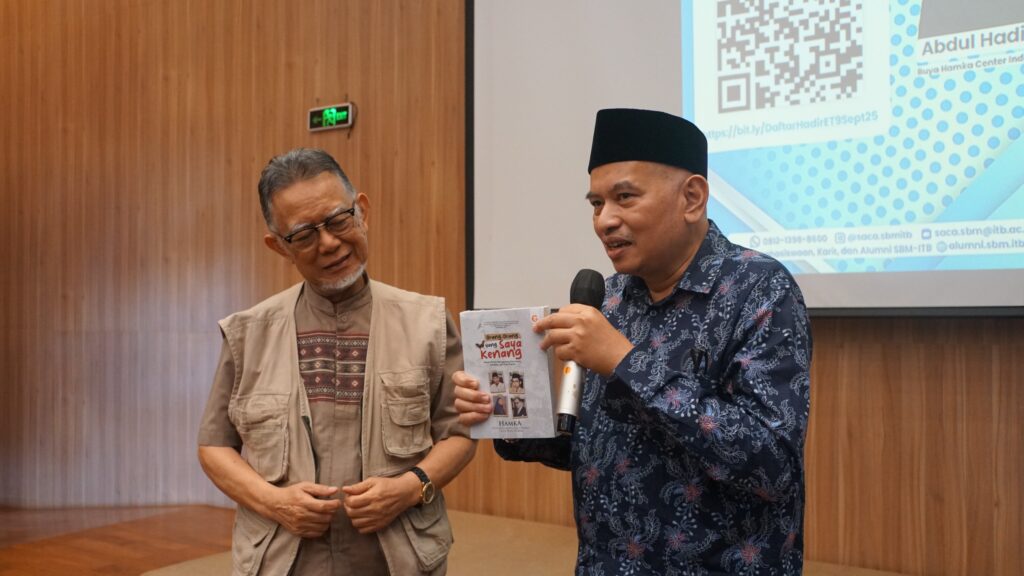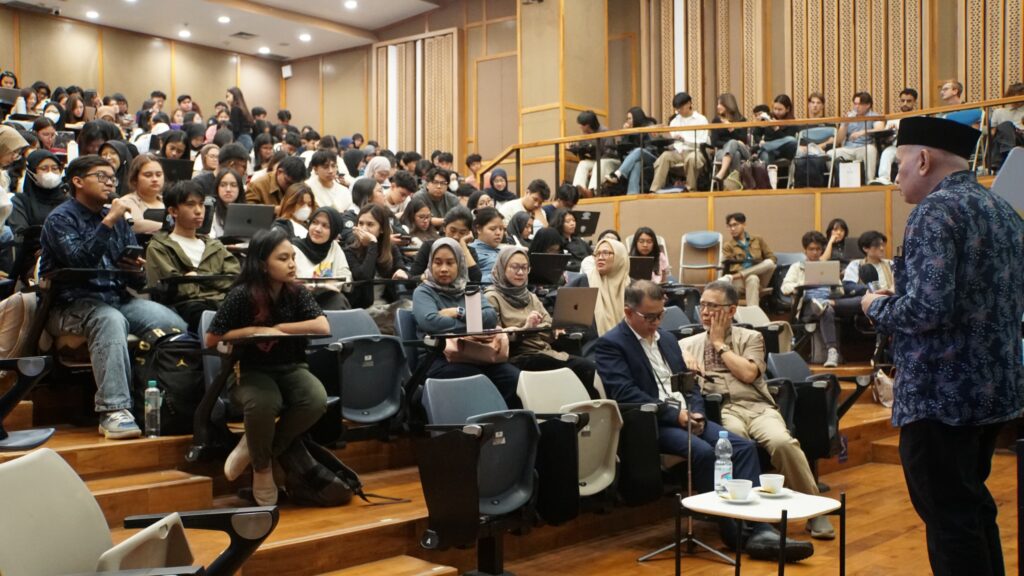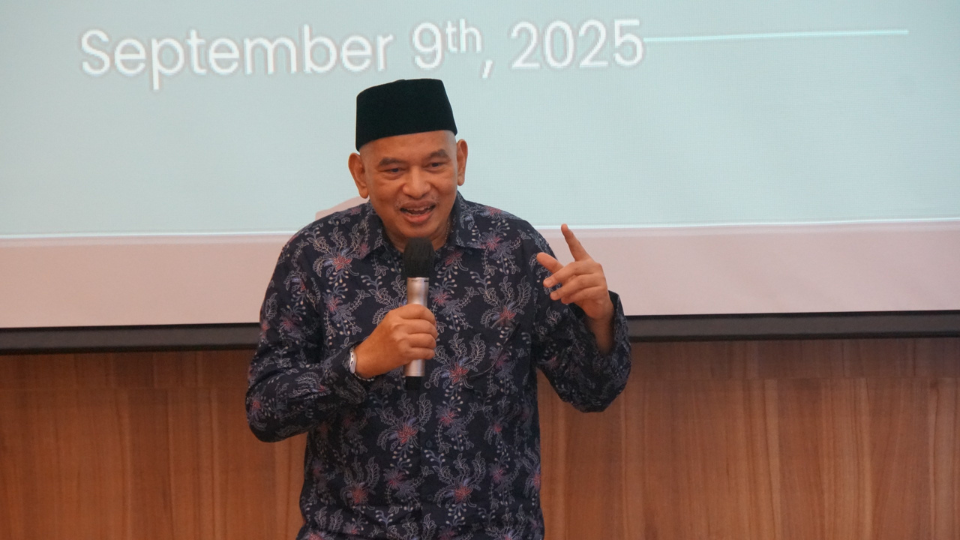Entrepreneurs are not solely focused on business and profit; they are, more broadly, value creators. Abdul Malik Karim Amrullah, better known as Buya Hamka, is an exemplary figure in this regard. As a prominent literary figure and cleric, he inspired people through his work and activities, revitalizing the community’s spirituality and imparting knowledge, character, and the advancement of civilization.
This perspective was shared by Abdul Hadi Hamka, Buya Hamka’s grandson and a representative of the Buya Hamka Center Indonesia. He expressed these thoughts during an Expert Talk titled “Buya Hamka’s Exemplary Legacy as the Foundation of Entrepreneurial Leadership” at the SBM ITB (9/10).

In this seminar, Abdul Hadi emphasized Buya Hamka’s exemplary values as the foundation for entrepreneurial leadership. He outlined that Hamka’s approach to entrepreneurship can be analyzed through three main dimensions.
First, knowledge entrepreneurship is demonstrated through his intellectual works, such as “Tafsir Al-Azhar,” “Modern Sufism,” and “Lembaga Hidup” (Living Institution), as well as his strategies for distributing books, magazines, lectures, and radio broadcasts.
Second, character entrepreneurship is illustrated in the ideas presented in “Modern Sufism,” which highlights active and progressive spirituality alongside the values of a strong work ethic, social responsibility, and character development.
Third, social and cultural entrepreneurship is exemplified by his involvement with Muhammadiyah, where he played a crucial role in establishing schools, hospitals, and missionary networks to enhance social impact.
Hamka also emphasized the importance of integrating knowledge and faith. He rejected the separation of religious knowledge and general knowledge, as the two complement each other and serve as the foundation for lifelong learning. The Islamic work ethic he taught emphasized professionalism, honesty, and usefulness.
Through the concept of Modern Sufism, Hamka encouraged the community to have a strong, progressive, and magnanimous mentality without abandoning their Eastern spiritual and cultural identity. His life’s journey, marked by struggles from self-taught to becoming a globally influential cleric, reflects the values of independence and resilience that can serve as inspiration for today’s generation.
Abdul Hadi emphasized that conferring the title “entrepreneur” on Buya Hamka truly restores the meaning of entrepreneurship to its most noble connotation. Buya Hamka was a visionary who was able to discern the needs of his time, an innovator who generated disruptive thinking through monumental works, an executor who consistently produced prolific writing and building institutions, and a creator of value whose wealth was measured not by possessions but by the thoughts and inspiration he passed on to millions.
Through this seminar, participants were encouraged to see that Buya Hamka’s legacy is not only relevant in the religious sphere but also crucial as an inspiration for modern entrepreneurial leadership. The values he left behind affirm that true entrepreneurs are those who create value, bring character to life, and make a real and sustainable impact on society.






